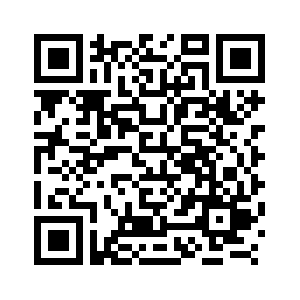CAIRO, April 8 (Xinhua) -- "Vaccine equity is the biggest moral test before the global community," United Nations Secretary-General Antonio Guterres has said. At a time when COVID-19 is ravaging the Middle East countries, China has withstood the test.
The global pandemic remains in a dire situation, and vaccines have obviously become a powerful weapon against the deadly virus. In many Middle East countries, surging infections, weak medical systems, as well as severe economic conditions have made the demand for vaccines particularly urgent. Even countries in a relatively stable and peaceful environment are running into difficulties in obtaining vaccines, not to mention those afflicted with conflicts and wars or suppressed by Western sanctions.
However, some Western powers who have never stopped interfering in domestic affairs of Middle East countries and creating tensions and turbulence in the region are all in complete silence at this moment.
With strong capacity for vaccine research, development and production, those countries, instead of lending a helping hand to people in need, chose to hoard vaccines and impose export restrictions on these live-saving tools, creating a "vaccine divide" and disrupting the global efforts in equitable vaccine distributions.
According to Duke University's Global Health Innovation Center, as of mid-January, high-income countries, which represent only 16 percent of the world's population, had taken 60 percent of available doses. "More other high-income countries have more than 100 percent coverage, and some can cover their populations several times over," the institute said.
Facing the raging pandemic, many Middle Eastern countries have turned their eyes to the East. As early as June 2020, China and the United Arab Emirates jointly conducted the world's first international phase III clinical trial of inactivated vaccines against COVID-19. Later, Bahrain, Turkey, Morocco and other countries joined the cooperation. So far, Chinese vaccines have arrived in more than 10 countries in the Middle East, playing a leading role in the region's anti-virus fight.
From sharing experience on pandemic control to carrying out vaccine cooperation and promoting fair distribution, China's timely and practical support for other countries, as well as its efforts to safeguard people's right to life and health, the most fundamental part of human rights, has been widely recognized worldwide.
Actions speak louder than words. All sober minds across the world have a pretty clear idea of who always indulge in meddling in others' internal affairs while refusing to take their due responsibilities in global affairs.
According to a survey polling citizens in six Middle Eastern countries conducted by the Arab Barometer research network, the Arab public view China more favorably than the United States. Researchers believe that China is playing an increasingly important role in the Middle East and North Africa by implementing the Belt and Road Initiative and helping the region fight the pandemic.
Cooperation between China and the Middle East epitomizes China's commitment to the global anti-pandemic drive. China is providing vaccine assistance to more than 80 countries and three international organizations, exporting vaccines to more than 40 countries, and cooperating with more than 10 nations in vaccine R&D and production, and has thus honored its commitment to making Chinese COVID-19 vaccines a global public good and promoted the accessibility and affordability of vaccines.
At this critical moment, the world community should band together to discard "vaccine nationalism" and bridge "vaccine divide" between the rich and the poor, and try its best to deliver vaccines to every corner of the world. To build a global safety net, China is ready to continue working with the rest of the world. Enditem



